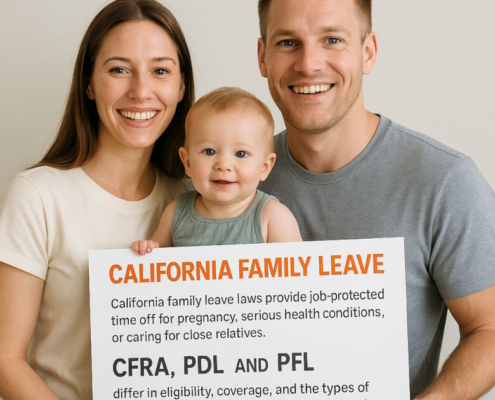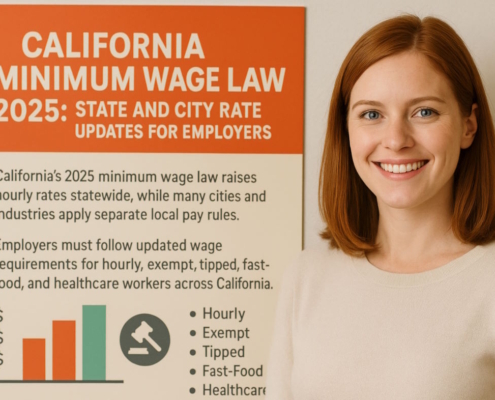How many hours is full time in California?
As a result of the Affordable Care Act, the bar for full-time employment, which was formerly forty hours, was decreased to thirty hours. This means that some companies are now required to provide healthcare coverage to employees working less than forty hours.
The Affordable Care Act does not change the fact that states retain authority over the determination of full-time minimum hours.
Do you want to know what the definition of full-time work in California is? Working 32–40 hours a week is generally considered full-time in California. But you must know that the Affordable Care Act (ACA) defines a person as working full-time if they put in 30 or more hours per week and as working part-time if they put in less than 30.
Knowing if someone is full-time is crucial since it determines if they are eligible for certain benefits.
The Overtime Laws in California
Health insurance coverage for workers putting in at least 30 hours per week is a requirement of the Affordable Care Act for companies with 49 or more employees. There is a tax penalty for companies that do not comply.
While smaller companies are not required to provide health insurance, those that do must treat all full-time employees the same.
The standard for full-time workers in California is a 40-hour workweek with an 8-hour shift. When an employee works more than eight hours in a single day, their employer is required to provide overtime compensation. When an employee works between eight and twelve hours in a day, they are eligible for overtime compensation, which is equal to one and a half times their usual rate of pay.
When an employee works more than 12 hours in a single shift, they are eligible for overtime pay, which is equal to double their usual rate for the additional hours worked.
If an employee works six days in a row, they will be eligible for overtime on the seventh day. If they work more than eight hours on that day, their rate will double.
No employee may work more than ten hours in a single shift if their company provides an alternative work-week schedule. When employees work longer shifts, their employers are required to pay overtime.
Executives, administrators, and professionals whose annual salary is at least double the federal minimum wage are exempt from the overtime wage rule. Workers in the administrative role oversee day-to-day operations or company policy, while those in the executive role are responsible for overall management. Staff members with specific training are considered professionals. Those in the legal, medical, or engineering fields are required to hold valid California licenses, but those in the “learned or creative” professions are exempt.
Additionally, workers in the film, television, commercial driving, construction, security, public utility, and wholesale baking industries, as well as union members, are not subject to the overtime rules.
Mandatory Breaks and Benefits
On any day when they are required to report but do not complete their whole shift, employees in California who typically work eight-hour shifts are required to earn at least four hours of compensation. This might happen if an employee is on call, has to check in daily to keep track of their schedule, or is sent home due to a lack of work.
The state of California does not mandate that businesses offer paid vacation to their workers. However, any paid time off that is granted to an employee is considered part of their wages and does not expire. The employer is obligated to reimburse the employee for any vacation time that has not been spent upon termination of employment.
Workers are required by law to take a 30-minute lunch break for every five hours they work. In the event that the nature of their profession prevents them from being off-duty, they are required to be compensated for their lunch breaks.
In addition, for every four hours worked, California employees are required to have a paid 10-minute break.
In addition to providing employees with the required breaks, employers must also make reasonable accommodations for employees who are breastfeeding.
No worker may put in more than twelve hours in a single day. Nevertheless, there is a caveat for workers in the healthcare industry who are required to put in extra hours due to unexpected circumstances or when their replacement fails to show up for work.
Unless both parties agree to do so voluntarily, no employer can make an employee work more than 16 hours in a single day.
Additionally, workers are not allowed to put in more than 24 hours in a row without taking a break for eight hours right after the first twenty-four hours.
Independent Contractors
How much of a responsibility an employer has for their employees is defined by their employment status. In exchange for carrying out a predetermined work, independent contractors get paid a certain sum while maintaining full control over the process.
They aren’t entitled to paid time off or overtime as regular workers are. In addition, they are responsible for paying all of their own employment taxes to the Internal Revenue Service.
Misclassifying workers as independent contractors can land employers in serious legal hot water. Wage and hour claims allow employees to seek redress for possible misclassification through the courts.
Wage and Hour Claims
The Labor Commissioner hears complaints of breaches of wage and hour laws from qualified employees. In order to conduct an investigation, the Department of Industrial Relations will conduct interviews with both the employer and the workers.
Hearings are unnecessary in the majority of these cases. If the parties are unable to reach a settlement, the Labor Commissioner will hold a hearing.
In addition to paying civil fines, employers who break labor regulations will have to compensate their employees. Employers are required to pay employees one hour’s salary for each breach of meal or rest break rights.
A company that pays its employees less than the legally required minimum wage or fails to pay overtime may be subject to fines, penalties, and other legal expenses.































